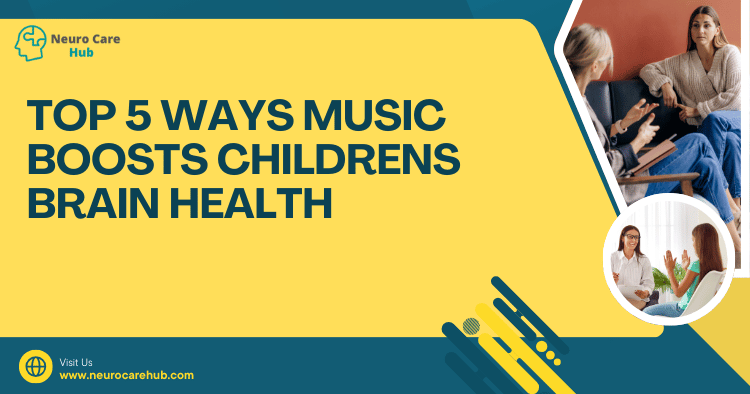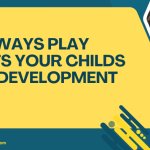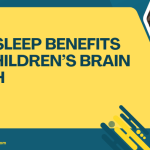Table of Contents
- Introduction
- 1. Enhances Cognitive Development
- 2. Improves Language Skills
- 3. Boosts Emotional Well-Being
- 4. Fosters Social Skills
- 5. Increases Memory and Concentration
- Conclusion
- FAQs
Introduction
Music is more than just an art form; it is a powerful tool for enhancing children’s brain health. From sparking creativity to improving emotional well-being, the benefits of music are immense. Studies show that children exposed to music at an early age experience improved cognitive skills and emotional intelligence. In this article, we will explore the top five ways music boosts children’s brain health, providing insights for parents and educators alike.
One study found that children who engage with music regularly exhibit higher levels of creativity and problem-solving skills.
1. Enhances Cognitive Development
Cognitive development refers to the growth and change in a child’s ability to think and understand the world around them. Engaging with music can significantly enhance this development.
How Music Affects Cognitive Skills
Research has shown that children who learn to play an instrument or participate in music activities tend to perform better in subjects like math and science. The complexity of music requires the brain to process multiple elements simultaneously, which strengthens neural connections. According to a study published in Psychological Science, children involved in music training showed improved IQ scores compared to those who did not engage in music.
| Cognitive Skills Enhanced by Music |
|---|
| Problem-solving |
| Critical thinking |
| Spatial-temporal skills |
| Creativity |
“Engaging in music is akin to a workout for the brain, fostering growth and development in cognitive abilities.”
Practical Tips
- Encourage your child to take music lessons or join a local choir.
- Use music-based games that promote strategic thinking and problem-solving.
- Explore top 5 lifestyle changes for better neuro health to support overall brain development.
2. Improves Language Skills
Music and language are closely linked; both involve rhythm, pitch, and tone. Children exposed to music tend to develop language skills more quickly than those who are not.
The Connection Between Music and Language
When children sing songs or listen to rhythms, they enhance their ability to hear and differentiate sounds, which is crucial for language acquisition. A study from the University of Washington demonstrated that young children who participated in music activities showed improved vocabulary and verbal skills.
“Singing not only entertains but also lays the groundwork for language development.”
Practical Tips
- Sing together! Choose songs with repetitive lyrics to improve vocabulary.
- Use musical storytelling to engage your child’s imagination and language skills.
- For more insights on improving mental health, check out top 5 reasons neuro care is essential in modern medicine.
3. Boosts Emotional Well-Being
Music has the ability to evoke emotions and can be a source of comfort and joy for children.
Emotional Benefits of Music
Listening to or creating music can help children express their feelings and cope with stress. A study published in the Journal of Music Therapy found that music can reduce anxiety and improve mood. Moreover, children who engage in music activities often report higher levels of self-esteem and confidence.
“Music provides a safe space for children to explore and express their emotions freely.”
Practical Tips
- Create a relaxing playlist for your child to listen to during study time or before bed.
- Encourage them to write their own songs or lyrics as a form of emotional expression.
- Discover more about enhancing family support in top 5 ways family support enhances neuro recovery.
4. Fosters Social Skills
Music is inherently social; it often involves collaboration, whether in a band, choir, or informal jam session.
The Role of Music in Social Development
Participating in group music activities can help children develop teamwork and communication skills. According to a report from the National Association for Music Education, children involved in music programs are more likely to engage in social interactions and form friendships.
“Music is a universal language that fosters connections among children, enhancing their social skills and teamwork.”
Practical Tips
- Enroll your child in group music classes or community bands.
- Organize family music nights where everyone can participate and share their musical talents.
- For more on the importance of community support, see top 5 benefits of support groups for neurological patients.
5. Increases Memory and Concentration
Music requires focus and memory, making it an excellent exercise for the brain.
How Music Enhances Memory
Learning to play an instrument or memorize lyrics helps improve a child’s memory capacity. A study published in Neuroscience Letters indicated that children who study music show improved memory performance and concentration levels compared to their peers.
“Memorizing music not only enhances memory but also sharpens focus, skills that are transferable to academic pursuits.”
Practical Tips
- Use music as a background while your child studies to promote concentration.
- Encourage them to memorize songs or musical pieces to strengthen their memory skills.
- Explore techniques to improve brain health with top 5 common medications for neurological disorders.
Conclusion
Incorporating music into your child’s daily routine can have profound effects on their brain health. From enhancing cognitive abilities to fostering emotional and social skills, the benefits are numerous. So, whether it’s through playing an instrument or simply listening to your favorite tunes, make music an integral part of your child’s life!
“Music is a gift that keeps on giving, enriching a child’s mind and heart throughout their life.”
FAQs
Q: At what age should I introduce music to my child?
A: You can start introducing music to your child as early as infancy. Singing lullabies and playing gentle music can be beneficial.
Q: Do I need to be musical to help my child?
A: No, you don’t need to be a musician to encourage your child’s musical interest. Listening to music and attending concerts can be just as impactful.
Q: Can music really improve my child’s academic performance?
A: Yes, studies have shown a correlation between music engagement and improved performance in academic subjects, particularly math and language arts.
Q: How can I find music programs for children?
A: Look for local music schools, community centers, and online platforms that offer music lessons tailored to children.
For more information on the effects of music on brain health, consider checking out the American Psychological Association and the National Association for Music Education.
By engaging with music, you are not just nurturing a talent; you’re investing in your child’s overall development. So crank up the tunes and let the music play!






